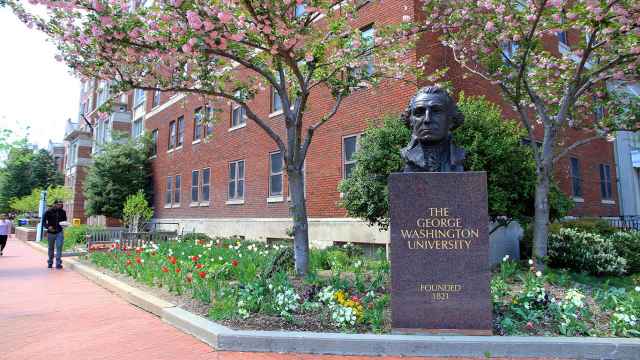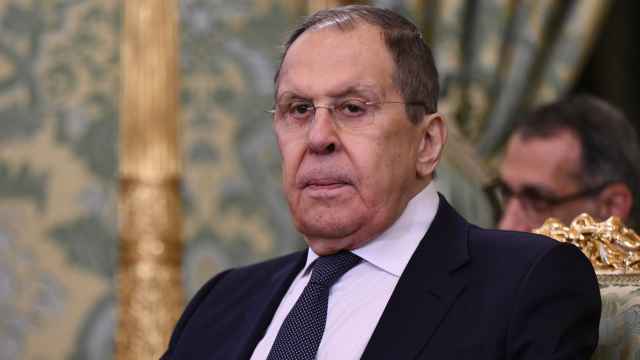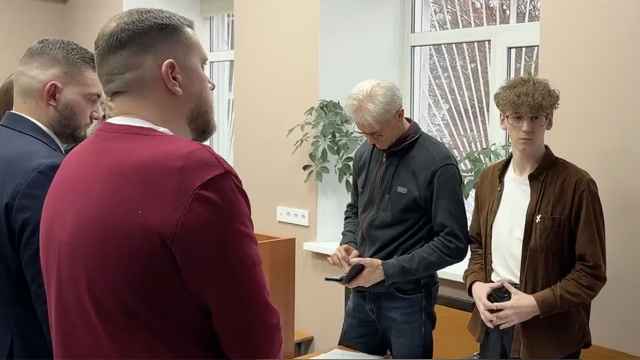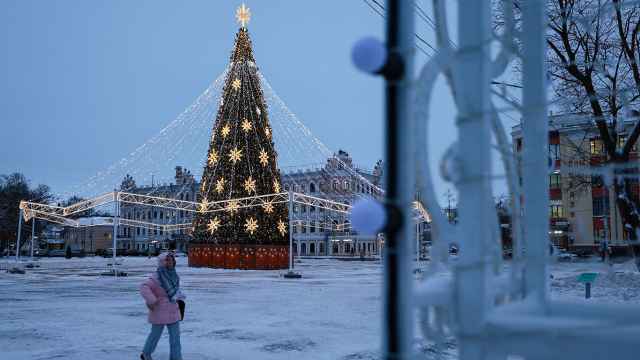NEW YORK — In the lounge of a New York apartment building thousands of miles from his father's jail cell in Moscow, Pavel Khodorkovsky presses play on his iPad.
The room fills with the dark slow swell of strings that suggest nightfall in Estonian composer Arvo Part's Symphony No. 4.
Part has dedicated the symphony to Mikhail Khodorkovsky, inspired by the plight of a tycoon who was once Russia's richest man, founder of its top oil producer, the now-dismantled Yukos.
On Sunday, Pavel Khodorkovsky, 25, will represent Part at the Grammys, at the composer's request. The symphony, commissioned by the Los Angeles Philharmonic, is up for a Grammy award in the category of Contemporary Classical.
"When I look at his soul I see that he is a noble person. All these wrong accusations have not broken him. To the contrary, they have made him stronger," says Part, speaking by telephone from his home in Estonia. "I want this person to have freedom one day."
In 2005, the elder Khodorkovsky was sentenced to six years in prison on charges of fraud and tax evasion, charges he continues to deny. On Dec. 27, he was sentenced to another six years on charges of stealing money and oil from Yukos. Prime Minister Vladimir Putin shed no tears.
Pavel Khodorkovsky left Russia in 2003 to attend Babson College in Wellesley, Massachusetts, and hasn't seen his father since. When his father was arrested, "he told me not to come back," Khodorkovsky says.
At the latest trial, lawyers managed to show the elder Khodorkovsky photos of his granddaughter Diana on their laptops, though an attempt to play Part's music was silenced quickly by the judge, says the son, who lives with his wife, Olesya, and toddler near the High Line and Chelsea galleries on the Far West Side of Manhattan.
He runs the back end of three Russian news portals, including Newsru.com, which he said has 25 million to 30 million page views a month. At his father's request, he has set up the Institute of Modern Russia in Sparta, New Jersey, to promote democratic values in Russia.
Through old-time snail mail, his father also advises him on a new venture he started with a friend from college called Enertiv.
"It's a very sophisticated electricity meter," which measures and gives reports on energy use, Pavel Khodorkovsky says. The company has placed the device in four schools in Connecticut.
"He is a macro manager, thinking about how to structure the company. I write back, 'Dad, we're only a year old.'"
The symphony has three movements, Pavel Khodorkovsky explains. The first is about nobility and thought, the second is titled "Breathless," and the third is "Resolute."
"The third movement is what I relate to most. It opens up with cellos, I see a door opening. Then there is a tense line, a violin solo. And at the end, the percussion comes through, almost like a march. I see a man walking."
There is no dramatic finale, he notes. "I like that because it means the story of my father is not over," the son says.
A Message from The Moscow Times:
Dear readers,
We are facing unprecedented challenges. Russia's Prosecutor General's Office has designated The Moscow Times as an "undesirable" organization, criminalizing our work and putting our staff at risk of prosecution. This follows our earlier unjust labeling as a "foreign agent."
These actions are direct attempts to silence independent journalism in Russia. The authorities claim our work "discredits the decisions of the Russian leadership." We see things differently: we strive to provide accurate, unbiased reporting on Russia.
We, the journalists of The Moscow Times, refuse to be silenced. But to continue our work, we need your help.
Your support, no matter how small, makes a world of difference. If you can, please support us monthly starting from just $2. It's quick to set up, and every contribution makes a significant impact.
By supporting The Moscow Times, you're defending open, independent journalism in the face of repression. Thank you for standing with us.
Remind me later.





